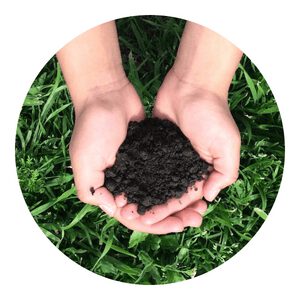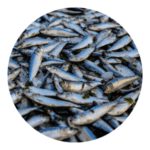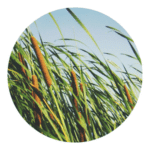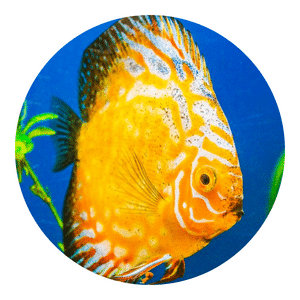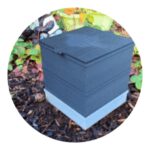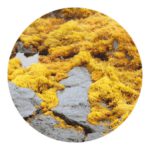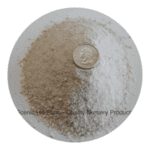Worm Castings Organic Fertilizer
Organic farmers have been using worm castings as a fertilizer for centuries. Worm castings are full of nutrients that plants need to thrive.
They are also rich in microbes that help to break down organic matter and make nutrients available to plants.
Worm castings can be used as a top dressing, mixed into the soil, or made into a tea and applied to the roots of plants.
Worm castings are an excellent organic fertilizer for all types of plants.
Worm Castings Menu
What are worm castings?
Worm castings are a type of organic fertilizer made from the excrement of earthworms.
They are an excellent source of nutrients and beneficial microorganisms for plants, and can improve soil structure and drainage.
Worm castings can be applied directly to planting beds or mixed into potting soil.
They are also a popular ingredient in compost mixes.
Why worm castings are great for plants
Worm castings are an excellent source of nutrients for plants.
They are packed with essential minerals and trace elements that plants need to thrive.
Worm castings also contain beneficial bacteria and fungi that help promote healthy plant growth.
Worm castings are a great alternative to chemical fertilizers.
They are environmentally friendly and provide plants with the nutrients they need in a natural way.
Worm castings are also very easy to use. Simply add them to your soil or potting mix and you’re ready to go!
If you’re looking for a natural way to fertilize your plants, worm castings are a great option.
They’re packed with nutrients, easy to use, and good for the environment. Give them a try and see the difference they can make in your garden!
How to use worm castings as fertilizer
Worm castings are an excellent organic fertilizer for your plants. They are rich in nutrients and help to improve soil structure.
Worm castings are easy to use, and you can apply them directly to your garden or potted plants.
Here’s how to use worm castings as fertilizer:
To use worm castings as a fertilizer, simply add them to the soil around your plants.
You can also add worm castings to your compost pile. If you have a worm bin, you can use the casting tea that drains from the bin as a liquid fertilizer.
Worm castings are an excellent way to fertilize your plants naturally. They are easy to use and provide many benefits to your plants.
Try using worm castings as fertilizer in your garden or potted plants today!
What benefits does using worm castings have?
There are many benefits to using worm castings as an organic fertilizer.
One benefit is that worm castings improve the structure of the soil. This improved soil structure leads to better drainage and aeration, which helps the roots of plants to grow more effectively.
Worm castings also help to increase the amount of organic matter in the soil, which improves its fertility.
Additionally, worm castings contain high levels of nutrients that are essential for plant growth, such as nitrogen, phosphorus, and potassium.
Another benefit of using worm castings is that they can help to control pests and diseases in the garden.
Worm castings contain beneficial microbes that can help to fight off harmful pathogens.
Additionally, the high levels of nutrients in worm castings can help plants to become more resilient to pests and diseases.
The rich fertilizer made from worm castings is perfect for organic gardens. It's earthy smell is like no other and it works like a charm on tomatoes. But beware, it also attracts bears who love the smell of rich earth.
Chappy The Gardener
Can I use worm castings instead of fertilizer?
Worm castings are an excellent organic fertilizer for plants. They are rich in nutrients and help to improve soil structure.
Worm castings can be used instead of fertilizer, but it is important to know how much to use.
too much and it can “burn” your plants. not enough and you won’t see the results you want.
When using worm castings as fertilizer, it is best to mix them with other organic matter such as compost or manure.
This will help to provide a more balanced nutrient supply for your plants.
Can you put too much worm castings in soil?
It is possible to put too much worm castings in soil. This can happen if the castings are not mixed properly with other soil amendments, or if they are placed too close to plant roots.
Too much worm castings can cause problems such as nutrient imbalances, root burn, and reduced drainage.
What are the disadvantages of worm castings?
Worm castings are rich in nutrients and beneficial microorganisms, making them an excellent organic fertilizer for gardens and crops.
However, there are a few potential disadvantages to using worm castings as fertilizer.
First, if the worm castings are not properly composted, they can contain harmful bacteria that can infect plants and people.
Second, worm castings can be high in salt content, which can damage delicate plant roots if used too often or in high concentrations.
Finally, fresh worm castings can be very smelly, making them unappealing to some gardeners.
Are worm castings good for all plants?
Worm castings are an excellent organic fertilizer for plants, and they can be used on almost any type of plant.
Worm castings contain high levels of nutrients that are essential for plant growth, and they also help to improve soil structure and drainage.
Worm castings are relatively easy to use, and they can be applied directly to the soil or mixed into compost.
Worm castings can be beneficial for both indoor and outdoor plants. For indoor plants, worm castings can help to improve drainage and aeration in potting mixes.
Outdoor plants can benefit from the added nutrients in worm castings, which can help to improve overall plant health.
Worm castings can also help to reduce compaction in heavy soils, making it easier for roots to penetrate the soil.
How long does worm castings last in soil?
Worm castings are an excellent organic fertilizer for gardens and potted plants.
They are rich in nutrients and help to improve soil structure and drainage.
Worm castings will last indefinitely in the soil, but they will slowly break down over time.
This means that they need to be replenished every few years to maintain their potency.
How often should I use worm castings?
As anyone who has ever gardened knows, there are a lot of different options when it comes to fertilizer.
You can go the chemical route, or you can opt for something more natural like worm castings. But how do you know how often to use worm castings?
Here’s a quick rundown: worm castings are full of nutrients that plants need, and they help aerate and improve drainage in your soil.
In general, you should use them every time you plant something new in your garden. You can also use them as a top dressing for existing plants.
If you’re not sure how much to use, start with a small amount and work up from there.
You can always add more, but you can’t take it away once it’s been applied to your plants.
Can I use worm castings during flowering?
Although worm castings are an excellent organic fertilizer, they should not be used during the flowering stage of a plant’s life cycle.
This is because the high nitrogen content in worm castings can promote excessive leaf growth at the expense of flower production.
If you want to use worm castings to fertilize your plants, do so during the vegetative stage or several weeks before flowering begins.
What do you do with worm castings in the winter?
Worm castings are an excellent organic fertilizer for winter, as they help to improve drainage and aeration in the soil while also providing essential nutrients.
You can use worm castings on your lawn, in your garden, or around your trees and shrubs.
Simply sprinkle them around the base of plants and water them in. For best results, apply worm castings before a rain or irrigation.
How do I put worm castings in my garden?
Worm castings are an excellent organic fertilizer for gardens. They are rich in nutrients and help to improve soil structure.
Worm castings can be added to the garden in a number of ways.
One way to add worm castings to the garden is to simply spread them on the surface of the soil.
This can be done before planting or after plants have already been established. Another way to add worm castings to the garden is to mix them into the top few inches of soil. This is best done before planting.
Worm castings can also be made into a tea and applied as a liquid fertilizer. To make worm casting tea, simply steep one cup of worm castings in two gallons of water for 24 hours. Once steeped, strain out the solid material and apply the liquid fertilizer to your plants.
The Best Plants to Use Worm Castings Organic Fertilizer On
There are a variety of plants that benefit from using worm castings as an organic fertilizer. Some of the best plants to use worm castings on include:
*Vegetables: Tomato, cucumber, eggplant, pepper, squash, pumpkin, bean, and potato plants all love worm castings.
*Fruits: Strawberry, raspberry, blackberry, and blueberry plants all respond well to being fertilized with worm castings.
*Flowers: Geraniums, impatiens, petunias, marigolds, and zinnias are just a few of the flowers that will thrive when you use worm castings as an organic fertilizer.
When to Apply Worm Castings Organic Fertilizer
Worm castings organic fertilizer can be applied to gardens at any time.
However, for best results, it is recommended to apply the fertilizer before planting.
This allows the worm castings to mix into the soil and provide nutrients to the plants’ roots.
Worm castings are also a good way to fertilize potted plants. Potted plants tend to need more frequent fertilization than plants in gardens, so applying worm castings every two weeks will help keep them healthy and vigorous.
Be sure to apply the fertilizer evenly around the plant, avoiding the stem and leaves.
Tips for Applying Worm Cast
If you’re looking to give your plants a little boost, worm castings are a great way to do it. Here are a few tips for applying them:
1. The best time to apply worm castings is in the spring or fall. This is because they need time to break down and release their nutrients into the soil.
2. You can apply them directly to the soil around your plants, or you can mix them into compost.
3. Worm castings are most effective when used as a top dressing, so be sure to spread them evenly over the surface of the soil.
4. You don’t need a lot – a thin layer of castings will do the trick. In fact, using too much can actually be harmful to plants, so be sure not to overdo it.
In conclusion, using worm castings as an organic fertilizer is a great way to improve your garden.
The nutrients in the castings will help your plants grow and the worms will help aerate the soil.
If you start using worm castings, you will see a difference in your garden in no time.
Helps Us Grow – Share If You Like












